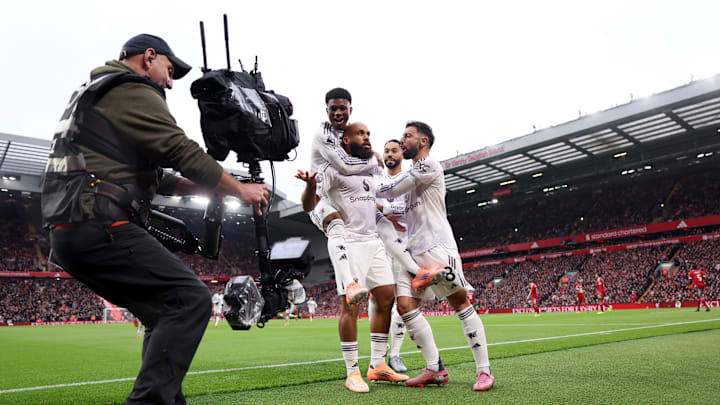Manchester United delivered one of their best performances of their season at Anfield to defeat defending champions Liverpool last weekend. It was a weight off the shoulders of the entire club, but most of all, of Ruben Amorim. Amorim had been routinely criticised in the weeks and months leading up to the game, and a lot of the criticism revolved around his stubbornness.
Amorim has his 3-4-3 system, and he sticks to it rigidly, even when the results fail him. The result against Liverpool at the weekend was the result not of a system change, but more of a tweak. Of course, it would do a disservice to players like Harry Maguire, Amad Diallo and Bruno Fernandes to say that the win can only be attributed to the system, but it was Amorim's shift in style that gave the players the opportunity to win the game.
Amorim raised eyebrows when he dropped Benjamin Sesko for the line-up against Liverpool. "Who's going to win the long balls?" cried the fanbase. Sesko winning the first ball and knocking it down to fellow attackers was a primary way United start attacks, especially when Senne Lammens is in goal. Now it seems that winning any long balls was impossible.
As the game started, United started on top, getting an early goal. Liverpool were struggling to deal with United's attack, and United were going long more than ever. In fact, according to Opta, they played 75 long balls in the game, most of them directly from the goalkeeper, the most of any United game since their win against Arsenal in December 2017.
The key to United's success was how their attackers were positioned for long balls. A long ball came up, and no one was able to compete with either Virgil Van Dijk or Ibrahima Konaté for the header. But it meant that Matheus Cunha, Bryan Mbeumo, Mason Mount, Bruno Fernandes and even wing-back Amad Diallo were all free, and able to pounce on the second ball.
Time and time again, the Liverpool defenders would win the header, only to bounce the ball straight to a United attacker, who was able to start the attack from high up the pitch, leaving defenders struggling to contain them.

This is how Mbeumo's early goal materialised: Van Djik wins the header comfortably, only for the second ball to fall to Bruno Fernandes, who feeds the ball to Amad Diallo, who then passes to Mbeumo, now in behind after attacking the space that Van Dijk had vacated. A tidy finish, and United were ahead.
In an era at United when the manager is so often criticised for his inability to adapt his system when it doesn't work, Amorim's tactical tweak helped United win one of their biggest games of the season. The next real test is how he will adapt going forward. With upcoming games against Brighton, a Nottingham Forest side with a new manager, and Tottenham, this tactic won't unlock United completely.
Amorim's method proves something important: tactical tweaks, when deployed correctly, can win United games. Hopefully Amorim learns the right lessons from this game, and doesn't to his past stubbornness. Commitment to a style is important, but without malleability, its the famous definition of insanity: doing the same thing over and over again and expecting different results.
